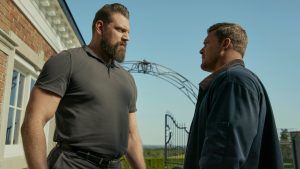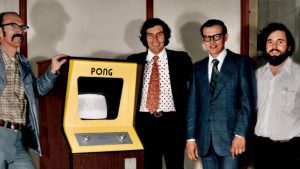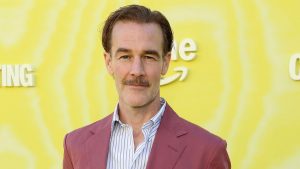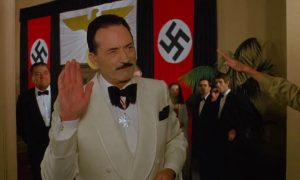
Reed Richards of the Fantastic Four stands before the Illuminati, a gathering of the smartest and most influential figures in the Marvel Universe, to make a declaration. “Everything dies,” he states. “You. Me. Everyone on this planet… This is simply how things are. And I accept that.”
This scene from New Avengers #1 (2013), written by Jonathan Hickman and penciled by Steve Epting, perfectly captures Reed Richards, one of the most important characters in Marvel history. It shows Richards approaching a catastrophic, multiversal problem with cool reason and intellect. It feels undeniably modern, building up to the universe-shaping events in Secret Wars, while still remaining faithful to the sci-fi influences that drove Jack Kirby and Stan Lee’s original vision in 1961.
And with Avengers: Secret Wars already planned as the capper to Phase Six of the Marvel Cinematic Universe, this is the type of Reed Richards that the MCU needs.
As the previous live-action incarnations of Reed Richards have demonstrated, not everyone can make this type of character compelling. Not even rubbery CGI could make Ioan Gruffudd feel less wooden in the 2000s Fantastic Four movies and Miles Teller played Reed with a bitter sneer in 2015. It’s easy to see why so many names have been tossed around for the MCU version of Reed, including Adam Driver and Penn Badgley. However, Deadline recently reported that Pedro Pascal is close to signing on for the role. And he’s the perfect choice to play all aspects of Reed.
Pascal hasn’t played many scientists across his long career, but he has played many intelligent, yet distracted characters. His mostly vocal performance in The Mandalorian reveals a calculating mind, a man who needs few words to achieve his goal. “I can bring you warm, or I can bring you in cold,” he tells his mark in the series premiere, a line delivered with just the right amount of sobriety. He allows no waiver in his tone when bartering with the powerful Client (Werner Herzog) later in that episode, underscoring Din’s business-first attitude.
Pascal uses his entire body to similar ends in the premier of The Last of Us, in which Joel meets Ellie (Bella Ramsay) for the first time. Worried about an ambush, Joel keeps his gun drawn and body tense, even pointing his weapon at Ellie. When Marlene (Merle Dandridge) talks Joel into turning the gun toward her instead of Ellie, Joel flashes the younger woman a look. Pascal allows no cruelty in his glance, but he does remain serious, communicating to everyone watching that Joel has one goal in mind.
Those scenes alone prove Pascal’s ability to embody Richard’s sober approach to problem solving. However, that’s not all that Reed Richards needs to be on screen. Comic book creators who focus solely on Reed’s rational mind tend to bring out a particularly interesting aspect of the character: cold, hard logic can at times lead Mister Fantastic to the role of villain, as in Marvel’s Civil War storyline or even in the recent series Fantastic Four: Life Story, written by Mark Russell.
In these stories, Reed approaches big problems with a chilling simplicity. During Civil War, Reed solves the problem of super-beings who refused to register with the government by building an Abu Ghraib-style prison in the Negative Zone. In the alternate reality tale Life Story, the coming of Galactus so overwhelms Reed that he drives away his friends and family, becoming a laughingstock in the scientific community.
Hickman winked at this tendency among writers during his Fantastic Four run, in which the Reed Richards from Earth-616 met his multiversal counterparts in the Council of Reeds. In every single alternate universe — including the Ultimate Universe, where Reed becomes the Maker — Reed ends up the villain, following his scientific mind to horrific ends.
But the best runs remember that although Reed’s tremendous intellect distracts him, it does not overpower him. His love for his family and friends, including his guilt over what happened to Ben Grimm, drives him to find better solutions.
Writer Mark Waid perfectly illustrated this aspect of the hero during his late ‘90s run. Fantastic Four #60 (1997), penciled by Mike Wieringo, ends with Reed telling the infant Valeria a story about an arrogant scientist whose mistakes changed the life of his friends, not always for the better. As he works on a cure, the scientist comes up with a solution to their problem that doesn’t involve betraying those he loves or turning people into guinea pigs. He suggests that they use their new powers for good, taking on exciting names and fancy costumes.
No, Pascal looks nothing like the lanky, cartoony version of Reed that Wieringo draws. Still, you can easily see him portraying a similar scene in an MCU movie.
In the pivotal sixth episode of The Last of Us, Pascal’s Joel teaches Ellie (Bella Ramsay) how to shoot, after the two reunite from a brief separation. “Deep breath in, slow breath out,” he explains with matter-of-fact calm, not acknowledging Ellie’s non-stop patter. “Squeeze the trigger like you love it,” he explains. “Gentle… steady.” He only stops when Ellie interrupts to ask, “You gonna shoot this thing or get it pregnant,” responding with just a look.
Pascal fills that look with a combination of reproach and admiration, a warmth that doesn’t dismiss the important work that he’s doing – after all, he’s teaching his charge a vital skill to stay alive in the show’s post-apocalyptic world – but reminds viewers why he’s doing this work in the first place. He’s doing it because he cares about Ellie.
In his breakout performance as Oberyn Martell on Game of Thrones, Pascal plays a charismatic braggart and unrepentant hedonist, a man with no interest in laboratories or secret hideouts. And yet, Pascal plays both the passion and intellect of the character, especially during his fateful battle with Gregor Clegane (Hafþór Júlíus Björnsson) in the season four episode “The Mountain and the Viper.” For all of his dazzling leaps and spins, Oberyn attacks methodically, planning his strikes to bring his mighty opponent low. He explains his strategy, admitting that he came to Westeros to get revenge for what Clegane did to his family.
Before the scene builds to its (literally) eye-popping conclusion, Pascal balances the precision and passion in his performance. His voice remains steady, his eyes like steel, as he makes strategic cuts and lists his demands. When the battle seems to be won, Pascal lets Oberyn’s anger and sadness erupt in his voice.
That combination of intensity and intellect reveals a key aspect of Reed Richards’s personality, especially the one who deals with the incursions of Secret Wars. Reed uses his brain, he gets caught up in problem-solving, not for himself, but for those he loves.
The second part of Reed’s speech, revealed in New Avengers #2, reminds readers of the relationship between his intellect and his passion. “What I will not tolerate — what I find unacceptable — is the unnatural alteration of that end.” Throughout New Avengers, Reed and the Illuminati make some questionable decisions, decisions that might remind viewers of the evil genius he so often becomes. But Reed’s insistence on the natural order stems from his relationship with those he loves and admires, the people he uses his mighty intellect to save.
That’s the version of Reed Richards the MCU needs, and Pedro Pascal is the right actor to portray him.
Fantastic Four will hit theaters on May 2, 2025.
The post Look No Further, Pedro Pascal Would Be a Perfect Reed Richards for Marvel’s Fantastic Four appeared first on Den of Geek.










